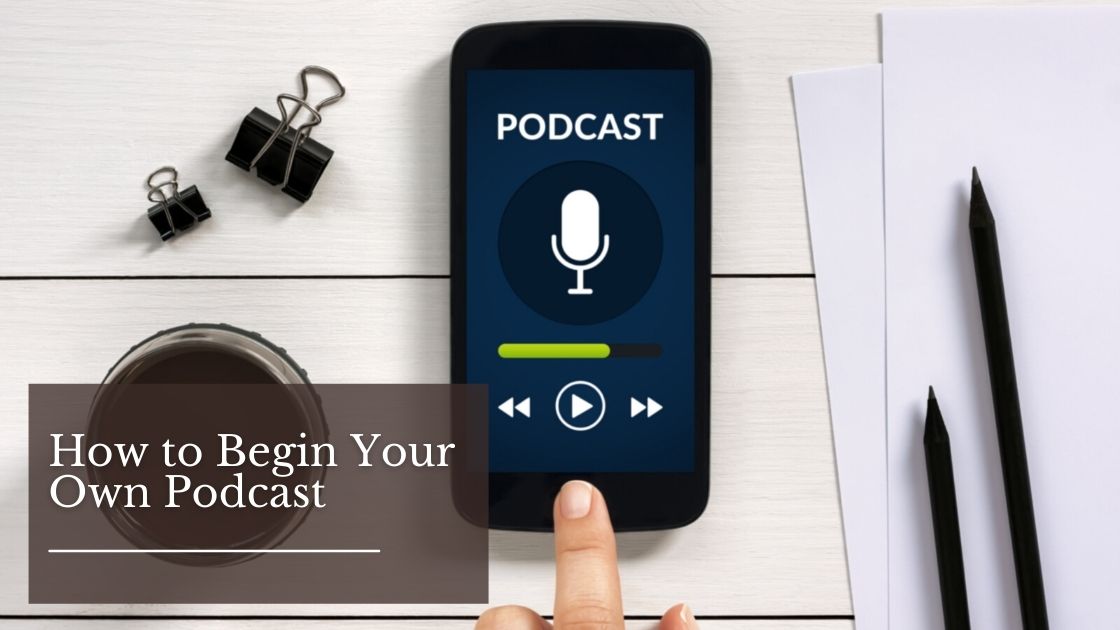What Are the Benefits of Starting a Podcast?
There are as many reasons to learn how to start a podcast as there are to listen to one.
- Do you want to convey a storey in a different way?
- Do you want to try something different with your company’s communications?
- Do you have a love for something you’d want to share with others?
- Do you have information that you might turn into a resource for others?
- Are you seeking for a fresh and inventive way to train your employees?
- Do you have a company that wants to branch out into a new medium?
Creating a concept
What’s the ‘Why’ of Your Content?
The first step in learning how to start a podcast is to ask yourself why you want to start one. You’ll make the most important decisions about your podcast at this phase. Your response today will guide your marketing strategy and how you create content.
Here are a few things to think about:
Is your podcast a complement to whatever else you do (a blog, a YouTube channel, a newsletter, etc.) or is it the focal point around which other things will be built?
Is this a business-oriented podcast (for example, for internal communications and training, or for branding and lead generation), or a personal project that you want to grow?
What kind of tale do you want to tell with your content? Is it fiction or nonfiction? Serialized (with a predetermined listening order) or episodic (like news or discussion shows)?
Is the goal of your podcast to sell a service or a storey, or is it to serve as a resource for others on their learning journey?
What is your primary objective? What will you use to measure the success of your content?
Going over these questions can give you a better understanding of your target audience, your update schedule, and even the tone you want to use in your podcast description, show notes, and social media interactions. When it comes to your audience…
How to Start a Business from the Ground Up: 6 Steps to Getting Started
Who Is Your Primary Audience?

While you’re studying how to start a podcast and figuring out why you want to do it, think about who you want to be your target audience.
For example, if your podcast is more business-oriented – say, if it’s an extension of your brand and you’re using it to offer a service – you’ll want to consider the types of people who can benefit from your service. If you’re making a fiction podcast, think about the kind of people who would appreciate and profit from the storey you’re telling. If you’re a podcaster who focuses on pop culture, you’ll want to consider who will enjoy the themes you chose and your perspective on them.
It’s helpful to visualise your ideal listener (or audience avatar). Are they quiet and more suited to a laid-back podcast, or are they extremely enthusiastic about the literary theory you’re analysing? What effect does this have on their enjoyment of other types of content? How can you make your material more appealing to them? What method will people use to listen to your show? To expand on that, how does your ideal listener interact with similar content?
You may develop more complex material and have more granular control over the direction and promotion of your show by focusing on your audience avatar. This granular approach will appeal to your readers more than attempting to explore a thousand points of view. Let’s imagine you want to launch a podcast on comic books, which is a large topic with a broad, casual audience. If you focus on a single imprint, a single comic run, or a single character that you believe your audience avatar will appreciate hearing about, your audience will be able to more quickly understand what you’re presenting and why they might enjoy listening. If you haven’t already, you should be.Spend some time researching online and getting to know existing content and communities in whatever space or topic matter you’re exploring. You’ll be able to see what topics your avatar is interested in, as well as the “language” they speak and how they prefer to engage online. All of these will assist you in honing your content, but particularly your outreach.
If you’re worried that someone else has previously covered a topic for which you’d like to start a podcast, consider what your unique perspective will be for the listeners. Perhaps you’re covering a topic that few others have addressed, or you’re delivering it in a format that differs from that of other podcasters. The granular approach might help you stand out from the crowd and pinpoint exactly who you’re trying to reach. It may also enable you to collaborate with others who have comparable audiences but differ in their approaches or specialisations.
Do you require an audience in order to begin your podcast? While it’s crucial to keep your audience avatar in mind while developing your programme, you don’t need a significant social media following to get started with podcasting. We have more information on how to expand your audience before your podcast begins, no matter what your internet presence is, which we’ll discuss further down.
What’s the elevator pitch for your podcast?
We make it a point to educate our guests in our Podbean 101 webinar that the title, description, podcasting categories, and logo are the most significant components of their podcast. We’ll get to your logo and description later, but for now, let’s concentrate on your title and description.
When people search for podcasts on Apple Podcasts, Spotify, Podbean, and other platforms, they seek for titles and descriptions. In fact, the vast majority of listeners think that the description of a podcast may make or break their choice to listen.
The elevator pitch, or one-line, of a script is the logline or one-sentence synopsis that includes four major elements about a production, according to Blake Snyder’s book SAVE THE CAT.
The Hook: a twist that attracts the reader’s attention.
The Insightful Mental Image: a clear picture of where the storey is set.
The target audience is the group of people who you want to reach out to.
The ultimate component that will describe the premise is the title.
Regardless of whether your podcast is scripted or not, you may use these elements to create an effective one-sentence summary of your show. You may then incorporate it into your podcast’s pitch and description.
With Podbean, you have 1000 characters for the description of your podcast and 200 for the title. This is enough space to write a description for your podcast that entices listeners, informs them about the target demographic, and tells them how to listen.
Amy Whitney, in a recent interview with us, discusses a vital step to consider with your description: SEO. You can find phrases that are relevant to your podcast by looking at the descriptions of other podcasts in your genre. By doing so, you’ll improve your podcast’s SERP answers (SERP stands for Search Engine Results Pages), allowing it to be found and prioritised over other podcasts on the same topic using precise keywords and search terms.
10 Ingenious Money-Making Ideas (Simple and Effective)
Choosing a Podcast Title

We’re not going to lie: deciding on a name for your podcast can be the most difficult part of learning how to create one. It’s the name that everyone will remember. When it comes to your material, you’ll say it a thousand times. It’ll appear on your podcast cover, Podbean URL, and possibly business cards and swag you’ll distribute out at events.
Your name should serve a dual purpose: it should describe your content while also acting as an intriguing hook for potential and current listeners. It’s one of the first things people see from your programme, so it can do a lot of the heavy lifting when it comes to attracting new listeners. Some podcast directories and programmes, such as Apple Podcasts, will just search for your title and author tags (and for some, just the titles). As a result, your title is the most important location to include some relevant keywords without going crazy.
